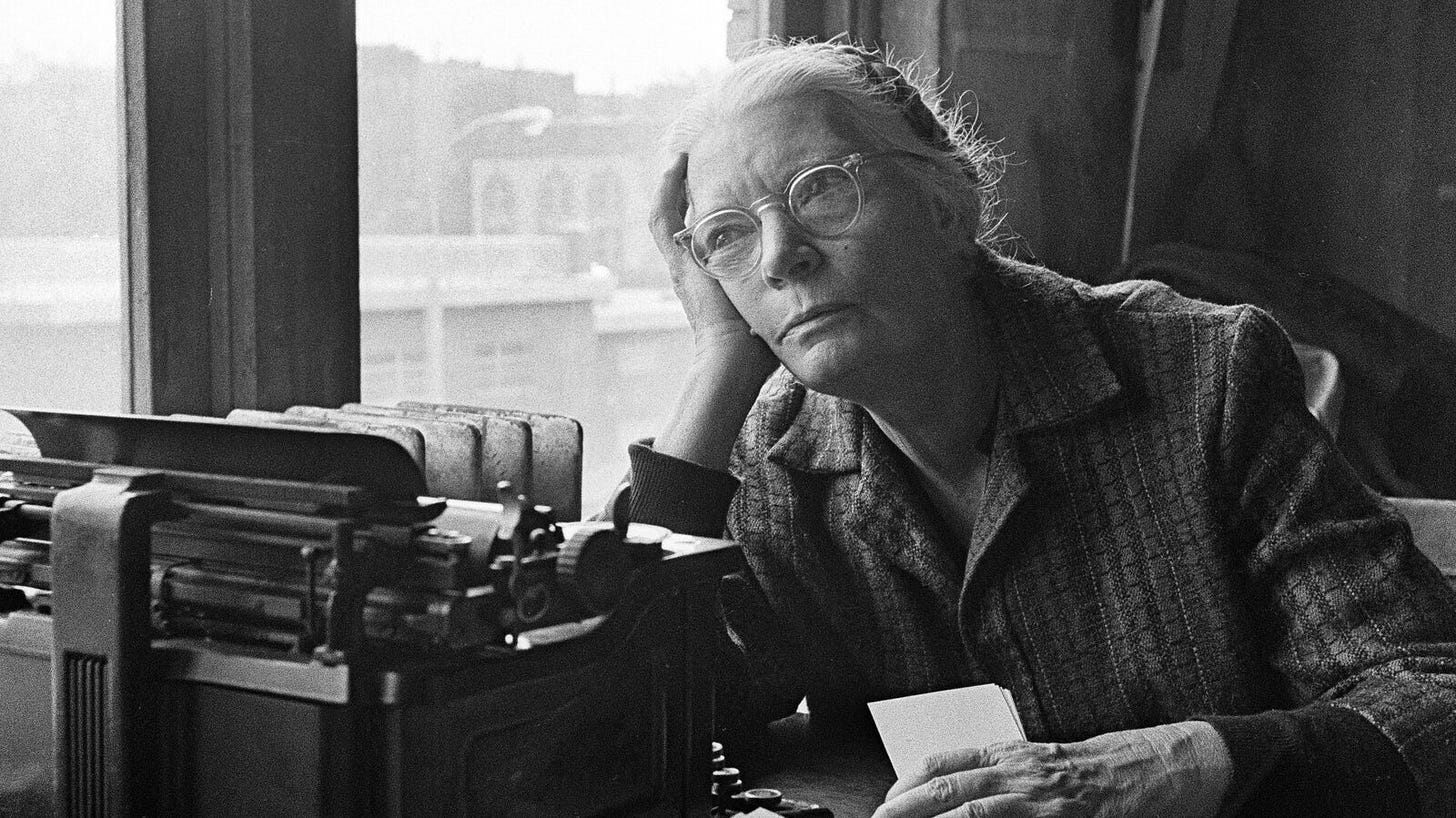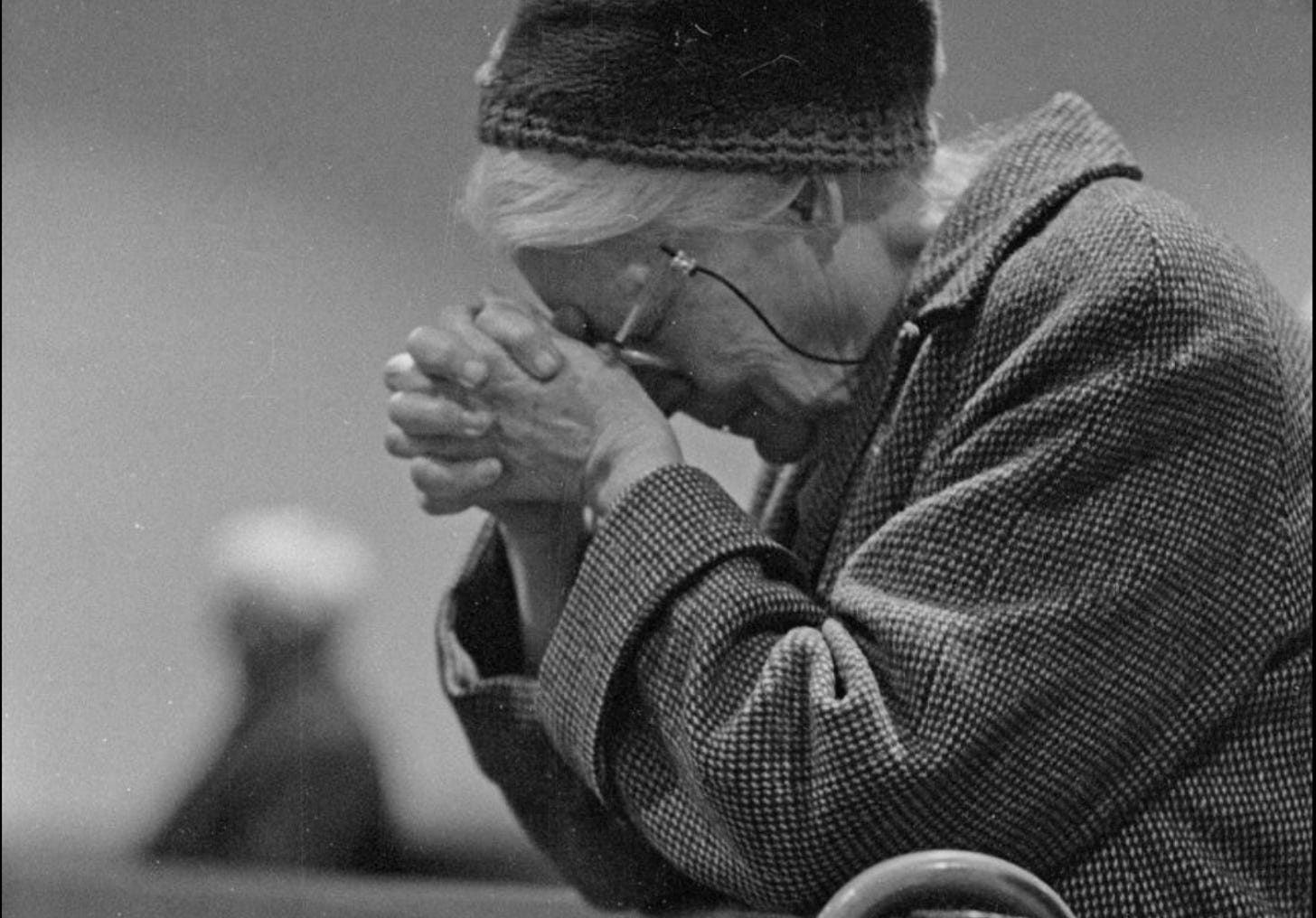I have been publishing Window Light for just about three months now, and I am extremely grateful for both those readers who have been along for the ride since the beginning and those who have joined us along the way. My goal for the newsletter is to provide meaningful commentary on theology and the life of the Church that is interesting and useful for readers.
With that in mind, I wanted to take the time to ask you, the readers, what you think is working well and what you would like to see more of. I want the newsletter to be something you look forward to reading, and so I am hoping you will share with me in the Comments your thoughts on what you have liked so far and what you would like to see going forward.
I thought it would help to summarize some of the different types of material I have included in the newsletter so far:
Interviews: In April, I interviewed the editors of the Journal of Moral Theology, M. Therese Lysaught and Jason King, to discuss what is involved with editing a journal and the future of academic publishing, and later that month I interviewed Mary Kate Holman on the work of the French Dominican theologian Marie-Dominique Chenu. I have a few more possible interviews in the works, as well. These have been among the most viewed posts in the newsletter, and so I envision interviews being an important part of the newsletter’s content going forward.
Commentaries on Public Events: Early on I wrote a commentary on the proceedings of the Los Angeles Religious Education Congress, and later in March I wrote on a conference at St. Ambrose University in Iowa on the legacy of Pope Francis on the tenth anniversary of his pontificate. In my recent post on theology and artificial intelligence, I also offered some brief comments on a recent virtual event hosted by the Catholic Theological Society of America.
Commentaries on Scripture: Early on, I wrote a couple of posts on upcoming daily or Sunday readings, including one on the relationship between human and divine agency in Scriptures and one on the Gospel story of the man born blind.
Reflections on the Vocation and Craft of Theology: The very first post for the newsletter was a reflection on my experience leaving my position as a professor at Marymount University and trying to figure out what it means to be a theologian outside of academia. This has been the newsletter’s most viewed post, no doubt in part thanks to it being picked up by America! I also wrote a reflection on the experience of co-authoring an essay with a friend and colleague, Anna Floerke Scheid.
Commentaries on Current Events: Other popular posts have been commentaries on current events, like my analysis of the case of lay Catholics buying and sorting through digital data to “out” gay priests. The more recent post on artificial intelligence would also fall into this category.
News Round Up: Early on I started including at the end of each newsletter a round up of stories from Catholic media on topics related to those covered in the newsletter or of interest to theologians and ministers. One direction I have considered is expanding on this section, offering some commentary in response to the stories linked in the round up.
Theological Reflections: Probably the most common type of post has been those where I engage in theological reflections on a topic of interest to me that I think might be of interest to readers. In addition to the commentaries on Scripture already mentioned, these include a post on the image of light shining through a window in medieval theology (the source for the name of the newsletter), and my two posts on the hermeneutics of Vatican II (here and here).
Highlighting Neglected Theologians: One of my favorite types of posts have been those highlighting the works of theologians who are maybe not as well known as they should be. These include an earlier post on Francis de Sales and two recent posts on John Duns Scotus (here and here). This would also include my interview with Dr. Holman on Chenu. In the future, I am especially interested in interviewing scholars who can introduce us to other theologians!
Wow, that is a lot of different types of posts! So which have been most valuable to you? What would you like to see in future issues of the newsletter? Are there other things it would be helpful for me to include in the newsletter that I haven’t thought of? Please take some time this weekend to share your thoughts in the comments. I also see this as an opportunity to get people more involved in commenting on posts. One of my goals for the newsletter is for it to be a source of community among theologians, where we can share ideas and reflect on issues in our field.

Violence and the Throw Away Culture
Probably like many of you, I am unsettled by the death of Jordan Neely in New York City, a homeless and mentally ill man expressing distress while riding a subway killed when a fellow passenger placed him in a choke hold for fifteen minutes. Neely’s death is only part of a larger pattern of disregard for the life of homeless and mentally ill persons in our society, including police sweeps of homeless camps in cities like Los Angeles and New York, police encounters that escalate into violence rather than providing people in distress with needed social services, and wanton killings of homeless persons. At the same time, cities fail to implement the affordable housing and mental health policies that would help people struggling with homelessness, instead criminalizing homelessness and poverty.
Neely’s death also comes amidst a shocking string of shootings in which innocent people have been killed for ringing a doorbell, accidentally driving up the wrong driveway, mistaking a similar car for their own, and asking a neighbor to stop firing their gun into the air. Many Americans are willing to resort to deadly violence for the flimsiest reasons. As with the killing of Neely, this represents a diminished regard for the dignity of human life. All of these killings also reflect a pervasive, irrational fear that has overtaken American society. This fear is in part driven by racism and xenophobia—some of the cases already mentioned reflect that. In recent years we have seen a surge in public acceptance for racist and xenophobic ideas (perhaps embodied in the rise and fall of former Fox News personality Tucker Carlson) and resistance to efforts to address the effects of racism in our society. But in part this pervasive fear reflects an increasing fragmentation and isolation in American society, reinforced by the COVID-19 pandemic. Earlier this week, the U.S. Surgeon General declared that our country faces an epidemic of loneliness and isolation.
In the midst of this epidemic of fear, violence, and loneliness, the Catholic Church ought to be a persistent witness to the dignity of the human person. Pope Francis has consistently pointed us in this direction, warning us of the “throw away culture” in his apostolic exhortation Evangelii Gaudium and providing us a social blueprint in his more recent encyclical Fratelli Tutti, in addition to demonstrating care for the dignity of the vulnerable in his pastoral activity. On the other hand, there is a small but influential traditionalist movement in the Church today that seems to offer resistance precisely at those points of Church teaching where we have seen an increasing recognition of human dignity: the rejection of the death penalty, respect for the right of religious freedom, and support for democracy, etc.
Although admittedly she is not my favorite (unofficial) saint, I cannot help but turn to Dorothy Day as a source of faith these days. Her care for the marginalized and outcast of modern life through the Catholic Worker Houses of Hospitality offers a radical counter-witness to the violence and fear so characteristic of our own society. Her work was guided by the simple conviction that Christ was present in those who are most down and out, those who today would be most prone to police violence or vigilante (in)justice, and that our love for Christ would be judged by how we treat them. She carried out this work with a complete commitment to nonviolence. Dorothy Day, pray for us!
Of Interest…
Writing before the recent killing of Jordan Neely, Dan Horan, O.F.M. writes at the National Catholic Reporter about the crisis of fear reflected in some of the other cases mentioned above. Horan points us to how Jesus himself addresses fear in his ministry. Well worth the read.
At America, Joe Hoover, S.J. has some important reflections on racism, violence, and the inner struggle revealed in a text message from former Fox News host Tucker Carlson, made public in the aftermath of the Dominion Voting Systems lawsuit against Fox News. Although I agree with Hoover that Carlson’s text message demonstrates an interior struggle against what Carlson had come to publicly represent, the other revelations from the Dominion lawsuit, particularly Carlson’s on-screen promotion of untruths about the 2020 election that off-screen he recognized he knew lies, along with Carlson’s more recent claims that he was fired from Fox because he is a truth-teller, demonstrate a deep personal pathology that is hard to fathom.
At Commonweal, Michael W. Higgins has a fascinating summary and analysis of the recent report outlining the sexual abuse conducted by L’Arche founder Jean Vanier and his mentor Thomas Philippe, O.P., as well as the theological beliefs used to justify these abuses. Higgins closes with the essential question of whether and how positive fruits, like the L’Arche movement, can survive when their founding is corrupted by sin and abuse. Higgins compares L’Arche to the similar example of the Legionaries of Christ, founded by Marcial Maciel Degollado, who was eventually discovered to have committed a number of sexual crimes. Higgins closes with a powerful quote from Hazel Bradley of L’Arche UK: “[We are] re-weaving our story together, to recreate a garment of colour, life, hope...discarding what is not of God, and building on what is. It is never too late to begin again.” In the past, I have been skeptical about how groups like the Legionaries could continue with viable charisms, but the testimony of L’Arche members like Bradley suggests sometimes there may be wheat in the midst of the chaff.
Coming Soon…
We are still awaiting the publication of the Journal of Moral Theology’s special issue on intersectionality and theology. Once it arrives, I will offer some thoughts on the issue here in the newsletter. I also have ready a blog post at the Catholic Moral Theology blog in response to one of the articles from the special issue, written by Hoon Choi. I will publish the blog post once the special issue is up and online!







Hello Matthew! I just recently discovered your site on Substack and have been intrigued by what I have read thus far. As a holder of two theology degrees ( from the far distant past) I appreciate the opportunity to read pieces that whet my interest in a field of study that I love. Thanks also for putting links to your past articles in this one, so I can catch up with what I have missed!